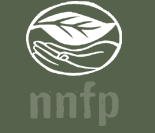|
|
Deborah Hill Sandra Denyce Jones is an independent rural community development consultant, primarily working with African-American landowners and communities with low-incomes to preserve the culture and environment while providing economic opportunity and an improved quality of life. Following her seven year tenure as Director of the Land Use & Environmental Education Program at Penn Center after her return to South Carolina in 1996, currently her major efforts are focused on Community-Based Forestry within the context of land ownership retention and asset based sustainable development. Before joining the Penn Center staff, she served as a Legal Services attorney for 17 years in South Carolina and California, most recently at the National Housing Law Project in Oakland, specializing in community economic development, consumer, and housing issues. In response to Hurricane Hugo and the Loma Prieta earthquake, she established the National Legal Services Disaster Relief Task Force in 1989. Sandra co-founded the Center for Choice in Housing in 1994 and is a founding board member of the Fund for Southern Communities and the Black Family Land Trust. A native of St. Louis and a fourth generation Arkansas family farming daughter, she received her BS as a member of the first graduating class of African and Afro-American Studies at Stanford University, and her JD at the University of California at Berkeley School of Law (Boalt Hall). Sandra serves as a board member of the National Network of Forest Practitioners and the South Carolina Association of Cooperatives and Farmers. She is a twenty-four year member of the South Carolina Bar Association and serves as an advisor to the Center for Minority Land and Community Security. She also serves on the selection committee for the Professional Agricultural Workers Conference and is a member of the National Conference of Black Lawyers. John Squires lives in the rugged cascade mountains of Washington State in the small town of Packwood just a short distance from Mt. Rainier and Mt. St. Helens. John spends his time with his wife Elizabeth and his daughters, Brooke E. and Zoe, camping and fishing in the outdoor recreational paradise of the southern Washington Cascades. John has also been to known to catch a salmon or more from the nearby Cowlitz River that flows just a few hundred yards from his home. John is a Forest Practitioner and spends many of his workdays in the woods with his trusty Stihl Chainsaw and his dented up ford pickup truck. John was instrumental in the restoration of salmonids to the Cowlitz River in the 90’s which had been extirpated by the building of dams in the 60’s. As a member of Friends of the Cowlitz he participated in forcing through the courts Government agencies, utilities and the dams owners to restore wild Salmonids to the Cowlitz River after a 30 year absence. Now Chinook, Coho, Steelhead, and Sea-run Cutthroat swim and spawn in the 246 miles of streams above the dams. John is a Charter member of 2 Forest Service advisory committees. His task in one of the Committees is to advise on the implementation of the Northwest Forest Plan and in the other to make recommendations on the allocation funds for restoration projects under the authority of the County Payments Act. John also is a charter member of Destination Packwood Association which was formed after our communities only source of jobs Packwood Lumber Mill closed. DPA’s goal is to look at ways to bring jobs to the community and diversify our economy. John also is a Charter member and President of the Pinchot Partnership a collaborative group composed of local community members, environmentalists, tribal interests, labor, timber interests, and private forest land owners. The goal is to provide jobs for local communities through restoration activities and sustainable timber harvest in the Gifford Pinchot National Forest. Before the forming of the Pinchot Partnership lawsuits, injunctions, strife, turmoil and gridlock gripped the National Forest. Since the Partnership formed there have been no lawsuits or injunctions and work in the woods is resuming. The partnership has sponsored a number of collaborative projects some using stewardship authorities that are restoring natural functions while creating local jobs. Collaboration instead of confrontation is proving to be the solution to preserve the environment as well as preserving local communities. John also is a member of the Rural Voice for Conservation Coalition which dialogues with FS officials and Congress in DC raising policy issues that need to be addressed to preserve rural communities and the environment. This coalition gives a high profile voice to rural communities that aren’t often heard and their policy issues rarely addressed. The NNFP could be instrumental in disseminating this model nationwide, so rural areas that are overlooked can have a voice and participate in the political process. John appreciates the unique opportunity that the NNFP provides for networking with other rural folks nationwide and learning from their experiences. He was particularly attracted to the social justice emphasis of the NNFP and believes that if we all work together we can ensure that Forest Practitioners are treated better than they are now. Steve Yaddof Tamara Walkingstick is an extension specialist in forestry with the University of Arkansas Cooperative Extension Service and President of the Arkansas Urban Forestry Council. She works with non-industrial private foresters throughout the state and also works to foster better connections between communities and natural resource professionals and agencies, particularly the U.S. Forest Service. Her initial work in community forestry was in Nepal, where she was a Peace Corps volunteer in the 1980s. She has a master’s degree from Oklahoma State University and a doctorate in forest economics from Auburn University, where she focused on the impacts of industrial forestry on communities. Tamara’s areas of interest include the sociology of natural resources, non-industrial private forest landowner issues (such as landowner education), and natural resource policy. She has spoken on several panels at NNFP meetings and wrote an article for the NNFP newsletter Practitioner. |
